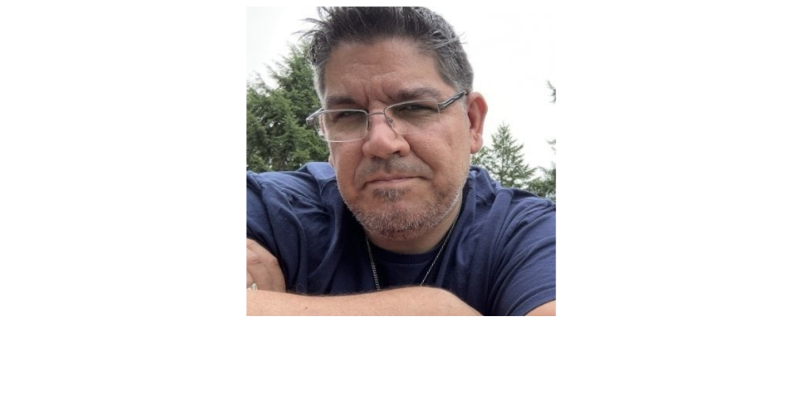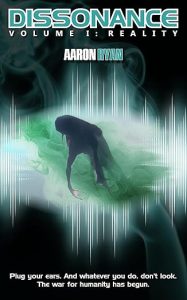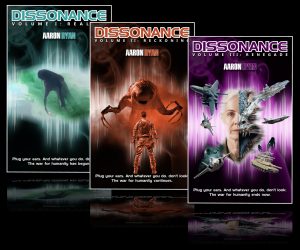Author Aaron Ryan discusses his acclaimed book series ‘Dissonance’
Jukebox Time is thrilled to bring you an exclusive interview with Aaron Ryan today, discussing his acclaimed book series Dissonance. We explored his inspirations, writing challenges, and the secrets to his literary success. Read on for a peek into the author’s creative world
Q. Welcome! It’s great to have you back on our platform. Your series transports readers to an incredibly detailed world. Could you walk us through the world-building process and how you balance creativity with scientific plausibility?
Thank you! Good to be back. I really strove to achieve verisimilitude. I wanted it to feel tangible, not squeaky-clean and antiseptic futuristic fare like Star Trek, but gritty, earthy, flawed, needing an oil change, that sort of thing. Everything is rusty and overgrown. But under all that are REAL streets of Clarksville…real terrain and real highways between there and Mammoth Cave. REAL aircraft carriers and tanks and branches. Real locations all under the weight of an overgrown earth due to a gorgon invasion and occupation that has lasted sixteen long, hard years.
Q. Characters often grow and change with a story. Is there a character in your series who has surprised you with their development from your initial conception?
Well, Pastor Rosie is sure to be a stand out. Everyone who has read her has loved her. She’s turned into such a force, and such a key, pivotal player throughout the whole series. She’s truly been the antithesis to the primary villain – who is actually not the gorgons – and it’s turned out wonderfully. She’s the light side of the balance, bringing equilibrium back to the dark side of the balance. And she has turned out masterfully. I LOVE Pastor Rosie.
Q. How do you navigate the balance between revealing too much and not enough in a story that hinges on suspense and mystery?
I love the question. All of my chapters in all three books begin and end with the same thought, or the same sentence, in a difference tense. I’ve loved weaving that little Easter Egg into each chapter. It sets up cliffhangers, it allows a good flow and gives me somewhere to go in each chapter, and allows them to be fairly episodic in their treatments. That promotes building, escalation, crescendos and decrescendos, and it’s worked out nicely. I like it and appreciate it when my readers develop a hunch for where the story is going, and then I can jerk them off the beaten path and throw something else at them. One of the greatest phrases I ever read was by Vladimir Nabokov: “The writer’s job is to get the main character up a tree, and then once they are up there, throw rocks at them.” SO true.
Q. Dystopian worlds can often be a reflection of our own. Is there a particular aspect of our current society that you amplified in your books Reality or Reckoning to create the dystopian setting?
Well, to be fair, it’s more post-apocalyptic than dystopic. Dystopian environments such as those found in modern-day novels typically revolve around us-and-them strivings, rich and poor, powerless and the elite, with an autocratic ruler or dictator at the top. Mine is more post-apocalyptic in nature: a cataclysm happened and really impacted our world. Yes, you still have people in power and those just trying to eke out an existence in the shadows, but overall, my trilogy revolves more around the human dynamic of justice vs. revenge, and then you have the nuisance that are these gorgons that have taken over our world that you have to swat like flies in the meanwhile. They are a hindrance to getting to the real root of the problem. I think that also is very true in our society. Politics are largely to blame for that. We let a LOT of issues confound us and split us apart, driving wedges between parties, communities, families, marriages, friendships and the like. It’s sad but true.
Q. What is a piece of advice you received when you were starting out that you find yourself disregarding now after having written a successful series?
I don’t think I gave myself any advice because I was more of a pantser in the beginning, allowing so much more organic flow to my writing. But as the story evolved, it desperately needed guideposts, mile markers as it were, to flesh out a running narrative that made sense and guided our protagonists toward accomplishing their mission, but also taking them on their character arcs, which is SO critical in writing. You have to care about your protagonist or the story goes nowhere.
Q. If you had to choose a different genre to write in, which one would it be and why?
I would love to try my hand at fantasy, but I would have to accept from the outset that mine will be NOTHING like the grandeur of Tolkien’s or McCaffrey’s or Rowling’s. I love fantastical fiction, and so that might be where I would go, but I truly love science fiction.
Q. Could you share with us a habit or a belief you’ve adopted recently that has positively impacted your writing or your approach to life?
Sure! Yes. I’ve proceeded with two life mottos that have greatly shaped who I’ve become and how I approach writing and marketing my books. One, from The Phantom Menace, is: “Your focus determines your reality.” It is SO true. What you envision and hope for and strive toward and think about will manifest into what you see. It’s just a given inevitability. You can only bring it into reality if it becomes your all-consuming focus. And two, something a friend told me once upon a time, “Someone’s endorsement of you – or lack thereof – has very little to do with your trajectory.” This is utterly true. In a social-media-driven world where we post so much content that strives for affirmation and seeks to be noticed, we have to remember that we are enough. We can’t please everyone, nor should we try. Our works won’t be well-regarded by all, and that must be ok. We MUST be okay with it. Both have been foundational to lightening my load and just creating good art, regardless of the outcome. I myself have to like it, and let my liking it, alone, be sufficient.
Q. Music often sets the mood for a scene. Do you have a soundtrack for your writing sessions, or is silence the canvas for your creativity?
I work in an office alone at home. I do voiceovers and authoring. And in the background, ALWAYS, are movie soundtracks. They come from a variety of genres and composers such as James Horner, John Williams, Michael Giacchino, Howard Shore, Iona, Tyler Bates, Hans Zimmer, Brad Feidel, Thomas Newman, and so many more. Hearing the scores they’ve created propels me back to the movie or show that contains it, and I love how it invokes imagery in my mind. That fuels my writing and my creativity; keeping that imagery coming.
Q.If you could sit down with one of your characters for a conversation, who would it be and what is one question you would ask them?
Oh my gosh I would LOVE to talk with the primary villain – no spoilers – and find out what makes them tick, how they became so nefarious, what drove them to do what they did, etc.. I would also love to sit down to a nice cup of coffee with Pastor Rosie and pick her brain – and spirit.
Q. Reflecting on the journey of your series, what has been the most profound feedback you’ve received from a reader that has stuck with you?
Hands down, a reader told me they forgot who the author was. They are a personal friend of mine, and they know they bought it from me. But they got so lost in, caught up in and wrapped up in the story, that they forgot that their friend was the one who authored it. That was truly complimentary, and I greatly appreciated hearing that.
About the book: The aliens invaded our world in the year 2026. They hovered there for three whole months, while the world watched and waited, wondering what they wanted with us. Then, on September 3rd, 2026, they activated, hunting us down with a terrifying power to immobilize us with their telepathy, paralyzing us where we stood, allowing them to eat at their leisure.
Sergeant Cameron Shipley lost everything to the gorgons in that invasion. 16 years later, he and mankind are eking out an existence in the shadows: hiding, trying desperately to survive.
Bestselling author Aaron Ryan crafts harrowing tales of epic tension, set amidst a gritty post-apocalyptic Earth, in this bestselling alien invasion military thriller series.
Readers of the “Alien Invasion” series by Johnny B. Truant and Sean Platt, the “Heartland Aliens” series by Joshua James, “The Hunger Games” trilogy by Suzanne Collins, and the “Legend” series by Marie Lu will appreciate this post-apocalyptic aliens thriller.
===
WHAT THE READERS SAY:
★★★★★ “Tension is incredibly high.”
★★★★★ “My heart was thumping.”
★★★★★ “Packs emotional and thematic depth.”
★★★★★ “The ending left me both satisfied…and wanting more.”
★★★★★ “Has you gripped!”
★★★★★ “It kept me turning pages.”
About the author: Aaron Ryan lives in Washington with his wife and two sons, along with Macy the dog, Winston the cat, and Merry & Pippin, the finches. He is the author of several business books on multimedia production penned under a pseudonym, as well as a previous fictional novel, “The Omega Room.” Aaron enjoys the arts, media, music, performing, poetry, and being a daddy. In his lifetime he has been an author, voiceover artist, wedding videographer, stage performer, musician, producer, rock/pop artist, executive assistant, service manager, paperboy, CSR, poet, tech support, worship leader, and more. The diversity of his life experiences gives him a unique approach to business, life, ministry, faith, and entertainment.




